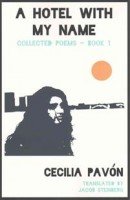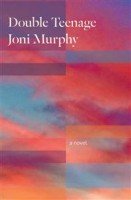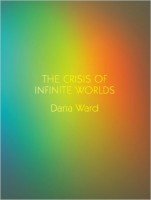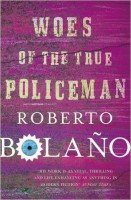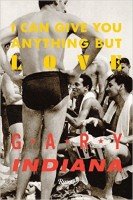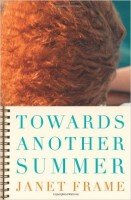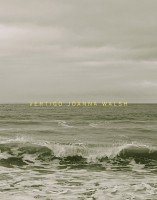Gjesteredaktør Chris Kraus
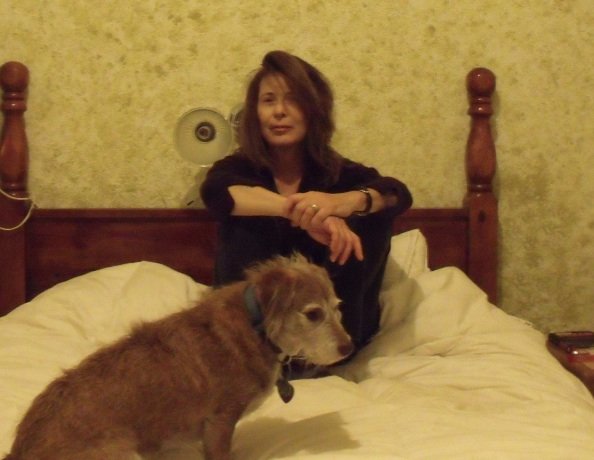
Chris Kraus er en amerikansk-nyzeelandsk forfatter, kunstner, filmskaper, redaktør, kritiker og professor i filmhistorie. Hun har vært redaktør for det innflytelsesrike forlaget Semiotext(e) og har også en bakgrunn i New Yorks vitale kunstscene på 70-tallet. Høsten 2017 gjester Kraus Moss og Norge i forbindelse med Møllebyen Litteraturfestival.
Anbefalinger
Cecilia Pavon’s poems are pure happiness, although they aren’t always about happiness, or about happy things. Living and working in Buenos Aires, she writes poems that are at once simple, subtle, direct and uncanny. Sometimes emotion erupts, but she keeps her eyes moving, scanning the room and the sidewalks, the faces of friends. Poetically, she seems a close cousin of Dorothea Lasky’s. Her poems are like beachballs: primary colors in bright plastic strips, driven by winds and always aloft. Translator Jacob Steinberg recalls hearing her read in Buenos Aires when he was 19 - “something in my soul stirred; I felt less alone.” In this collection of poems published in Argentina between 1998-2002, he’s done a fabulous job at rendering her simple and feminine-not-feminized Spanish into compulsively readable English. The poems draw you in.
Founding the legendary Belleza y Felicidad storefront cultural center, small press, gallery and store with her friend and sometime-collaborator Fernanda Laguna in 1999, Pavon’s poems reflect that era’s intense alternative scene of artists and intellectuals marooned by the economic crisis, without losing their singularity. As her friend, the writer Cesar Aira has written, Pavon’s triumph is one of creating “a world within a world.”
DOUBLE TEENAGE
Joni Murphy’s debut novel, Double Teenage, ends with the words, “This is a spell for getting out of girlhood alive,” but it speaks equally well to anyone alert to the ways in which a culture of violence can inflect all aspects of life. Growing up in the American Southwest during the 1990s, Murphy’s two upper-middle-class protagonists are stunned by the murder of Donna Beth, their sometime-babysitter and role model. As they get older, they begin to see that the violence around them is systemic, extending to the routine killings of the narco wars and the way these horrors are normalized until they are reduced to ambient noise. Permeable and boundary-less, aware that all boundaries are false, Celine and Julie struggle to make sense of their environment through sex, romance and drugs, and through fashion, literature, theater, critical theory, and art. Written with a cool but empathic distance, Double Teenage could be the definitive book of the “Young-Girl” as theorized by Tiqqun. It’s also about NAFTA, spectacular serial killings—including the Ciudad Juarez femicides—and media’s comforting lull.
Some of the poems in this book are actually prose, and some are real poems. Dana Ward’s work is hard to describe, but I think he is one of the most important and endearing poets in the US today. By “endearing” I don’t mean cloying. His work is a sustained effort to understand everything. He’s like a panopticon equipped with a zoom lens. He writes about everyday stuff – I was going always to the mall/in those months,/the young century’s rainiest/April & May to walk the/baby & to understand my art./I didn’t understand – and then spirals off into the cosmos. “The Internet” is often used as a key to understanding his work perhaps because his poems reflect a barrage of information, but in the most un-vacant way. He lives in Cinncinati via New York. The used copy I bought online is heavily annotated in cursive script by “Rose Segal,” who amazingly, given how dense the work is, has pencilled things in the margins like “this happens to me.” Which seems like proof that his work is universal.
Perhaps the funniest of Bolano’s books, WOES was published a decade after his death, assembled from folders and files left on his computer. Almost everything important within Bolano’s vast work appears here – the limitless erudition, the dumb poet jokes, the shaggy dog stories, the constant & weary alertness of exile, the requiem for a generation that lived, or did not live, through the Latin American dirty wars, and ominous fear haunting the north Mexican border. His sense that everything’s finally futile, which doesn’t mean it’s not funny and totally full.
Nominally a memoir – Indiana promises it will be his first, and his last – I Can’t Give You Anything But Love offers a new model for what a “memoir” can be. Foraging across screen memories of childhood — “my memory,” as he writes, “is a viscid, opaque continuum of fragments” — Indiana soon abandons the enterprise. Instead, he gives an account of a life-long friendship and a series of visits to an increasingly “open” and neoliberalized Cuba. As he writes: “Of course it’s coming, coming here, coming soon, the gathering tsunami of Our Kind of Capitalism. iPad, iPod, YouTube, Buy It, Love It, Fuck It, Dump It, Buy a New One. The people who sell all this shit say it’s what people want, and they’re not wrong. But if people knew what they were in for, their heads would explode.”
Published posthumously in 2008, this short Janet Frame novel was written in 1963, but withheld from publication because it was too painfully real. The book is an account of a short, painful weekend. Living in London and trying to launch her writing career, Frame finds herself estranged in a strange land. Then 30 years old, she’d lost a whole decade wrongly incarcerated for mental illness in New Zealand, an experience she describes in her first novel, Owls Do Cry. Frame was painfully shy, and Towards Another Summer is an excruciatingly microscopic account of a weekend she spent with a journalist who, trying to be kind, invited her to spend a weekend with his young family in their country home. From the moment the narrator gets off the train, each interaction with her hosts proves a painful ordeal. Should she help with the dishes? Is it okay to go for a walk? The novel demonstrates how diffuse anguish can be, when tormented by thousands of tiny contingencies. Should I leave my toothbrush out in the bathroom? What will my hosts think? Do they feel sorry for me?
This portrait of serial killer, famed for killing Gianni Versace, anticipates and diagnoses the non-commonplace psychic malaise where ‘inexplicable’ acts of violent periodically erupt in movie theater, campuses, marathons and elsewhere in the US. When the culprits are Muslims or foreigners, it’s called “terrorism,” but when they’re American-born, we’re at a loss to understand it. Indiana carefully examines the larger socio-economic context against which Cunanan’s mania unfolds. It’s a story of assimilation gone wrong. Indiana’s description of a childhood spent in a vacant, uncertain San Diego County near military bases is beautiful and sad. Cunanan passes himself off as a South American Jew. A step up from his lower class Filipino origins, he’s trapped in a narrative about status, appearances and money in the semi-closeted upscale community of La Jolla that he doesn’t quite grasp. As Gore Vidal once said: “If you want to see the face of a killer, look in any mirror.”
Joanna Walsh’s haunting and unforgettable stories enact a literal vertigo—the feeling that if I fall I will fall not toward the earth but into space—by probing the spaces between things. Waiting for news in a children’s hospital, pondering her husband’s multiple online flirtations or observing the tourists and locals at a third-world archeological site, her narrator approaches the suppressed state of panic coursing beneath things that are normally tamed by our blunted perceptions of ordinary life.
In Hotel, the narrator examines the nature of permanence and dwelling while working as an itinerant hotel reviewer as her marriage collapses. Relentlessly brilliant, Walsh domesticates the oddness the lies under the surface of things. She’s one of the most original writers working in the UK.
Joanna Walsh’s haunting and unforgettable stories enact a literal vertigo—the feeling that if I fall I will fall not toward the earth but into space—by probing the spaces between things. Waiting for news in a children’s hospital, pondering her husband’s multiple online flirtations or observing the tourists and locals at a third-world archeological site, her narrator approaches the suppressed state of panic coursing beneath things that are normally tamed by our blunted perceptions of ordinary life.
In Hotel, the narrator examines the nature of permanence and dwelling while working as an itinerant hotel reviewer as her marriage collapses. Relentlessly brilliant, Walsh domesticates the oddness the lies under the surface of things. She’s one of the most original writers working in the UK.
